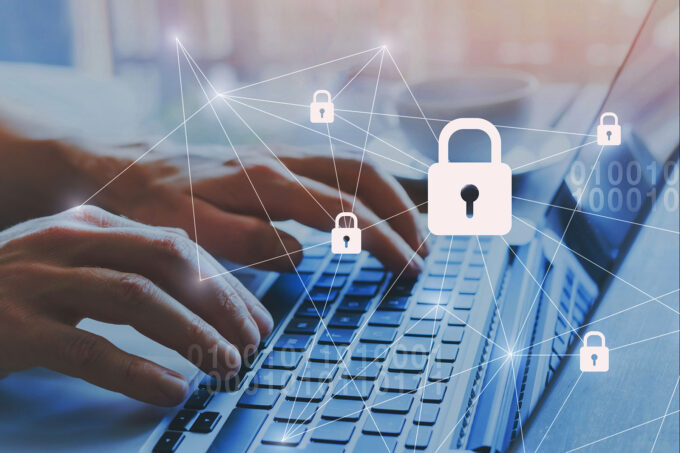Imagine a world where the people we interact with, hire, or let into our homes remain enigmatic entities. A scenario where we entrust valuable assets or share confidential information without knowing anything substantial about the other party.
Frightening, isn’t it? Such a landscape would be ripe with risks and uncertainties. This is where the indispensable role of background checks comes into play, offering a protective shield in various spheres of life. Let’s dive deep into this subject, unraveling its intricacies.
The Purpose and Importance
Background screenings serve as invaluable tools in our modern society. At their core, these checks operate as precautionary measures, illuminating an individual’s or entity’s history to ensure the security and safety of others.
From renting an apartment to applying for a job, these checks validate claims and identify potential risks. If you are in need of this, Florida Background Check Services are there to help you.
While many perceive these investigations as primarily a measure for hiring decisions, their utility extends far beyond.
When lending money, leasing property, or even in personal scenarios like online dating, these checks safeguard against deception or malevolent intent. They act as the first line of defense, fostering trust and transparency in myriad interactions.
Types of Information Gathered

Delving into a person’s history might yield a plethora of details. Criminal records are a pivotal element of these checks, revealing any past legal transgressions.
But these screenings don’t just stop there; they often probe into educational qualifications, verifying if that Ivy League degree is genuine.
Financial histories, too, play a pivotal role. Through credit checks, one can discern an individual’s financial responsibility, ensuring they’re trustworthy in monetary matters.
Employment histories, past addresses, and even personal references might also feature, creating a holistic portrait of the individual in question.
Industries and Sectors Where Background Checks Are Common
The corporate arena, especially in sectors like finance and healthcare, frequently utilizes background screenings. Companies in these sectors deal with sensitive data, where a single indiscretion can have catastrophic consequences. Thus, hiring individuals with impeccable records becomes paramount.
Yet, beyond the corporate realm, other sectors leverage these checks. The real estate domain, for instance, employs them to vet potential tenants, ensuring property safety and consistent rental income.
Similarly, the childcare industry, where the safety of children is at stake, makes these checks a staple in their hiring process.
Legal and Ethical Considerations in Conducting

Screenings, while immensely beneficial, tread a thin line between protection and invasion. It’s essential to understand that not all information is fair game.
There are stipulated legal boundaries, such as the Fair Credit Reporting Act, which ensures that checks are not misused or lead to discrimination.
Ethically, it’s imperative to maintain a balance. While employers, for instance, have a right to safeguard their interests, potential employees have a right to privacy.
Using these checks as the sole determinant in decision-making processes or prying into unnecessary personal details can lead to moral dilemmas and potential legal backlash.
Process and Methods
A comprehensive screening process demands meticulousness. Initially, consent is imperative. One cannot delve into another’s history without explicit permission. Once that’s secured, a combination of online databases, court records, and personal interviews can unearth the needed details.
However, the digital age has brought forth a myriad of online platforms offering instant checks.
While tempting, it’s crucial to approach these with skepticism. For thoroughness, it’s best to rely on a mix of traditional investigative methods coupled with digital tools, ensuring both depth and breadth in the collected information.
Challenges and Limitations

Like all systems, background checks are not infallible. Occasionally, they might fail to pick up on crucial details, leading to unsavory outcomes. Factors like database errors, mistaken identities, or outdated information can result in inaccurate portrayals.
These inaccuracies can have dire consequences, especially for those being investigated. Being erroneously labeled due to mistakes in the screening process can lead to missed opportunities or unjust character assessments.
Hence, while these checks are tools of safety, they must be used judiciously and with a grain of salt.
Benefits for Individuals and Organizations
For organizations, the advantages are palpable. From avoiding potential legal troubles to ensuring a harmonious work environment, these checks can save costs in the long run. They can prevent instances of fraud, theft, or other internal issues that could tarnish an organization’s reputation.
But these screenings aren’t just beneficial for businesses. Individuals, too, stand to gain. In personal relationships or transactions, having the assurance that the other party is trustworthy can be invaluable. These checks can prevent potential harm, offering peace of mind in various life situations.
Privacy Concerns and Data Security

The age of digitization, while facilitating extensive checks, also brings forth privacy dilemmas. How is the amassed data stored? Who has access to it? Is it safe from potential breaches? These concerns are paramount, especially when handling personal information.
To mitigate these concerns, stringent data handling and storage protocols are crucial. Organizations conducting checks must be transparent about their methods and prioritize safeguarding the sensitive information they gather, ensuring they’re not unintentionally contributing to potential data misuse or breaches.
How They Contribute to a Safer Society
The ripple effects of background checks permeate beyond the immediate transaction or relationship, influencing the larger societal framework.
With each comprehensive screening, there’s a potentially harmful element – be it fraud, crime, or deceit – that’s kept at bay. These checks act as deterrents; when individuals know their histories are subject to scrutiny, they might think twice before erring.
In community settings, screenings ensure that individuals with histories of violence or malfeasance are identified, thus protecting vulnerable populations. Whether it’s a school ensuring the safety of its students or a neighborhood association verifying the credentials of its residents, these checks build communal trust.
They stitch a safety net beneath society’s tightrope, providing a sense of security and communal harmony.
Final Words
In a world where trust can sometimes be elusive, background checks serve as beacons of clarity. By judiciously leveraging these tools, we can make informed decisions, both in professional and personal realms.
Navigating the intricate landscape of background checks is essential for securing your ideal position, especially when it comes to mitigating potential stumbling blocks that could deter you from your desired career path.
But, like all powerful instruments, they demand responsible use. Balancing the scale between protection and privacy, between assurance and trust, is the key to harnessing their full potential.






